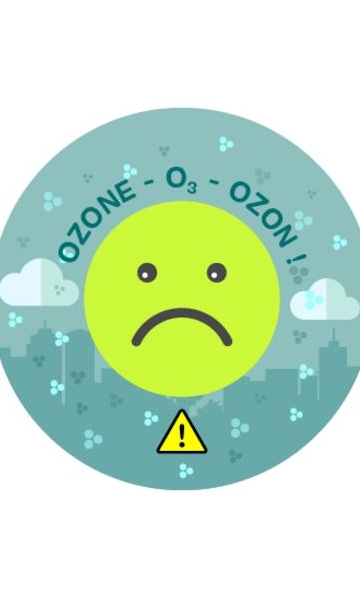Brussels regularly experiences winter or summer pollution peaks that may have consequences for our health and our environment.
Pollution peaks may be due to fine particles (PM10) and nitrogen dioxide (NO2) or ozone concentrations (03). In summer, ozone peaks mainly follow severe heat.
An overall air quality index
Using its 10-colour scale ranging from red (dreadful) to blue (excellent), the global air quality index can be used to make a quick assessment of the air measured across all stations for the main pollutants affecting our region (ozone, nitrogen dioxide, sulphur dioxide and particulates in the air) The website details the overall result by pollutant type and by station on demand.
Pollution peaks due to PM10 and NO2
Since pollutants may become a problem for the population, there are 4 thresholds each represented by a different colour flag (blue, yellow, orange, red) to complement the overall index. Each threshold is matched with a range of measures aimed at reducing microparticle and nitrogen dioxide emissions including limiting speed, improved STIB offer, driving restrictions, etc. These rather exceptional measures are broadcast via the usual information channels (press, radio, internet, etc.). A text and email alert is also available.
View the alert thresholds (FR/NL)
Obligations for companies subject to a Corporate Travel Plan
By anticipating the risks and preparing our response in the event of a peak, we can help to improve the air quality, while contributing to the smooth running of the company.
All year round
- Provide information about the measures taken by the company in the event of pollution peaks through internal communication channels. Educate about the options for car sharing, remote working, moving days off, etc.
- Provide information about other means of travel such as public transport, bikes or walking, encourage your employees to prepare their route in advance depending on their transport method.
During a peak
- Promote working at home or moving the day off. Encourage your employees to avoid physical effort.
- Encourage the use of public transport rather than the car. Choose car sharing and practice flexible driving (eco-driving) if using a car is necessary.
- Put an upper limit of 20°C on the building temperature once a pollution peak is forecast.
PBe informed and prepared
A free text or email alert is available to everyone. Simply register through the text alerts section on the website
www.qualitedelair.brussels.(FR/NL) 24 hours before the pollution peak, you will receive a text or an email indicating the measures implemented by the public authorities.
